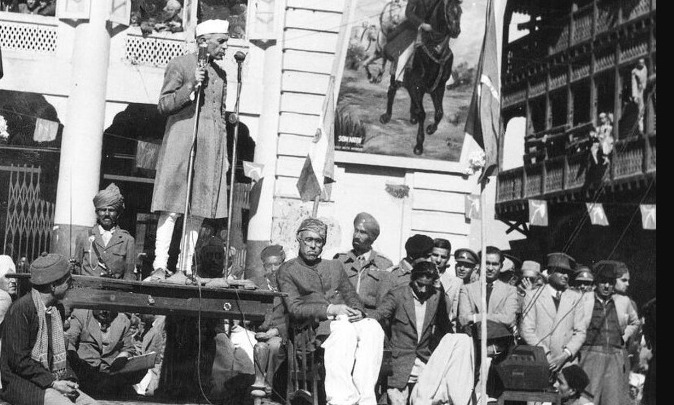
India may prevent the declassification of papers from 1947 related to Kashmir as it fears the “sensitive” letters could affect foreign relations, reported Guardian stating internal government documents.
In a recent report, the Guardian said that the letters, known as the Bucher papers, are believed to include political and military arguments for why India’s first prime minister, Jawaharlal Nehru, called for a ceasefire with Pakistan and provided special status to the state of Jammu and Kashmir.
The Bucher papers refer to communications between Gen Sir Francis Robert Roy Bucher, who served as second commander-in-chief of the Indian army between 1948 and 1949, and government officials, including Nehru.
Over the years, several attempts have been made by activists to declassify the papers to throw light on the reasoning for article 370, which gave Jammu and Kashmir its special status.
As per the Guardian, a recent foreign ministry document said the contents of the papers should not be declassified yet. The papers contain “military operational matters in Kashmir and correspondences amongst senior government leaders on sensitive political matters on Kashmir”, the document said.
The papers have been kept at the Nehru Memorial Museum and Library, an autonomous body under India’s culture ministry.
According to a source with knowledge of the matter, they reveal that Nehru was aware and informed of the military development in Kashmir, including Pakistan’s attempts to use external military assistance to escalate the situation.
“Roy Bucher suggested a political approach to solve the escalating situation given military fatigue faced by Indian troops due to 13 months of military deployment, including taking the matter before the United Nations,” the source said.
That advice may have influenced Nehru’s decision to grant Kashmir special status. In 1952, the prime minister argued that the aspirations of the people of Kashmir should be respected. “I want to stress that it is only the people of Kashmir who can decide the future of Kashmir,” he told India’s parliament. “We are not going to impose ourselves on them on the point of the bayonet.”
Pertinently, the region was granted semi-autonomy granted by the Article 370 and 35-A of the Indian constitution. However, the far right Hindu government at the Centre stripped the region of the limited autonomy, putting the region under months’ long curfew, in a bid to ‘integrate’ Kashmir into India.
The Bucher papers were handed over by India’s external affairs ministry to the Nehru museum and library in New Delhi in 1970, with a note saying they should be kept “classified”. They have remained in the library’s closed collection since then, the foreign ministry document said.
An Indian activist, Venkatesh Nayak, has filed multiple appeals to declassify the papers, a move that was initially rejected. However, in 2021 the Indian information commissioner ruled it was in the “national interest” but fell short of ordering the disclosure of the crucial documents. The order advised that the library may seek the foreign ministry’s permission to declassify the papers for academic research.
In a letter dated 12 October 2022 that has been reviewed by the Guardian, the chair of the museum and library, Nripendra Misra, wrote to India’s foreign secretary arguing the papers “are very important for scholarly research” and requested declassification, the report states.
“We have read the contents of the Bucher papers. Our view is that the papers need not remain ‘classified’ beyond the reach of academicians. We are opening papers of other important public figures also,” Misra argued.
India typically allows the declassification of archival documents after 25 years.
The foreign ministry argued in the document that the disclosure of the papers should be put in “abeyance” for the time being and advised that the “sensitivity of Roy Bucher papers and the likely implications of their disclosure” should be examined further.
Sources say the government has yet to take a final decision on the matter, reported the Guardian.
